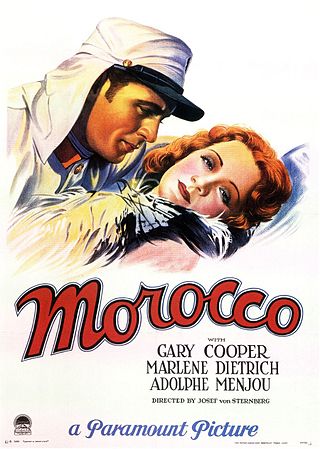
Morocco is a 1930 American pre-Code romantic drama film directed by Josef von Sternberg and starring Gary Cooper, Marlene Dietrich, and Adolphe Menjou. Based on the 1927 novel Amy Jolly by Benno Vigny and adapted by Jules Furthman, the film is about a cabaret singer and a Legionnaire who fall in love during the Rif War, and whose relationship is complicated by his womanizing and the appearance of a rich man who is also in love with her. The film is famous for a scene in which Dietrich performs a song dressed in a man's tailcoat and kisses another woman, both of which were considered scandalous for the period.
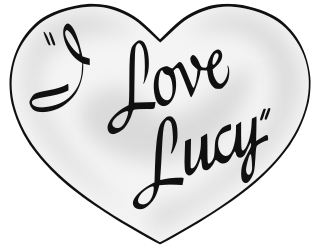
I Love Lucy is an American television sitcom that originally aired on CBS from October 15, 1951, to May 6, 1957, with a total of 180 half-hour episodes spanning six seasons. The series starred Lucille Ball and her husband Desi Arnaz, along with Vivian Vance and William Frawley, and follows the life of Lucy Ricardo (Ball), a young, middle-class housewife living in New York City, who often concocts plans with her best friends and landlords, Ethel and Fred Mertz, to appear alongside her bandleader husband, Ricky Ricardo (Arnaz), in his nightclub. Lucy is depicted trying numerous schemes to mingle with and be a part of show business. After the series ended in 1957, a modified version of the show continued for three more seasons, with 13 one-hour specials, which ran from 1957 to 1960. It was first known as The Lucille Ball–Desi Arnaz Show, and later, in reruns, as The Lucy–Desi Comedy Hour.
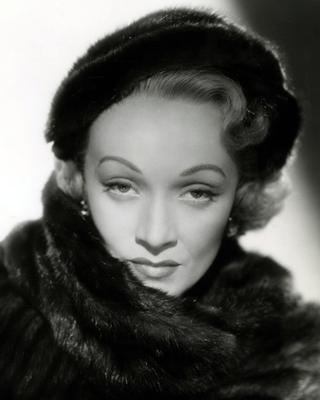
Marie Magdalene "Marlene" Dietrich was a German-born actress and singer whose career spanned from the 1910s to the 1980s.
The year 1968 in television involved some significant events. Below is a list of television-related events in 1968.

Burt Freeman Bacharach was an American composer, songwriter, record producer, and pianist who is widely regarded as one of the most important and influential figures of 20th-century popular music. Starting in the 1950s, he composed hundreds of pop songs, many in collaboration with lyricist Hal David. Bacharach's music is characterized by unusual chord progressions and time signature changes, influenced by his background in jazz, and uncommon selections of instruments for small orchestras. He arranged, conducted, and produced much of his recorded output.

Petula Clark CBE is a British singer, actress, and songwriter. She started her professional career as a child performer and has had the longest career of any British entertainer, spanning more than 85 years.

"Lili Marleen" is a German love song that became popular during World War II throughout Europe and the Mediterranean among both Axis and Allied troops. Written in 1915 as a poem, the song was published in 1937 and was first recorded by Lale Andersen in 1939 as "Das Mädchen unter der Laterne". The song is also well known on a version performed by Marlene Dietrich.
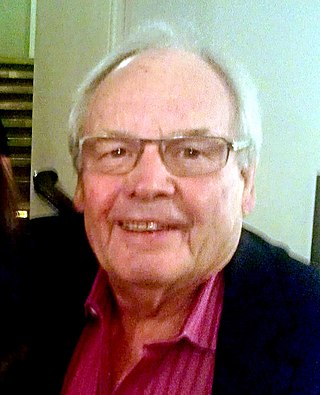
Anthony Peter Hatch is an English composer for musical theatre and television. He is also a songwriter, pianist, arranger and producer.
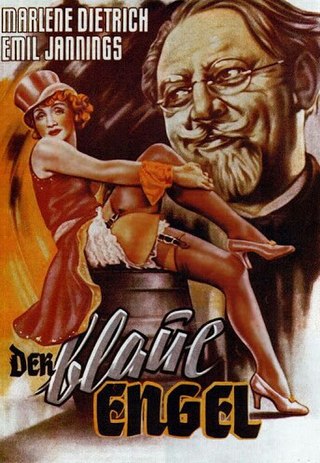
The Blue Angel is a 1930 German musical comedy-drama film directed by Josef von Sternberg and starring Marlene Dietrich, Emil Jannings and Kurt Gerron. Written by Carl Zuckmayer, Karl Vollmöller and Robert Liebmann, with uncredited contributions by Sternberg, it is based on Heinrich Mann's 1905 novel Professor Unrat and set in an unspecified northern German port city. The Blue Angel presents the tragic transformation of a respectable professor into a cabaret clown and his descent into madness. The film was the first feature-length German sound film and brought Dietrich international fame. It also introduced her signature song, Friedrich Hollaender and Robert Liebmann's "Falling in Love Again ". The film is considered a classic of German cinema.

Motown 25: Yesterday, Today, Forever is a 1983 television special, produced by Suzanne de Passe for Motown, to commemorate its 25th anniversary. The program was taped before a live audience at the Pasadena Civic Auditorium in Pasadena, California on March 25, 1983, and broadcast on NBC on May 16. Among its highlights were Michael Jackson's performance of "Billie Jean", Smokey Robinson's reunion with the Miracles, a Temptations / Four Tops "battle of the bands", Marvin Gaye's inspired speech about black music history and his memorable performance of "What's Going On", a Jackson 5 reunion, and an abbreviated reunion of Diana Ross & the Supremes, who performed their final #1 hit, "Someday We'll Be Together" from 1969. The show was written by Buz Kohan, Ruth Robinson, and de Passe. The broadcast was watched by over 47 million viewers.
Frank Sinatra: A Man and His Music is a one-hour television special in color, first broadcast by NBC on November 24, 1965, to mark the occasion of Frank Sinatra's 50th birthday. It was directed by the multi-Emmy-winning Dwight Hemion. Frank Peppiatt and John Aylesworth were the head writers. Telecast at a time when television had just switched to full-time color programming, the show was an enormous success, so much so that it spawned two follow-ups: A Man and His Music – Part II (1966), featuring Nancy Sinatra, and A Man and His Music + Ella + Jobim (1967), starring Ella Fitzgerald and Antônio Carlos Jobim. An album by Sinatra, also titled A Man and His Music, was released at around the same time as the special.
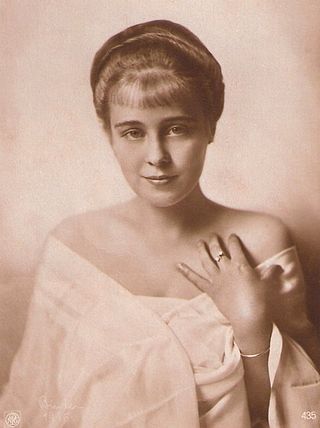
Käthe Haack was a German stage and film actress. She appeared in more than 200 films and 30 television productions between 1915 and 1985.

Marlene Dietrich was a German and American actress and singer.

Maria Elisabeth Riva is a German-born American actress. She worked on television at CBS in the 1950s. She is the daughter of actress Marlene Dietrich, about whom she published a memoir in 1992.

The Strauss Family is a 1972 British Associated Television series of eight episodes, about the family of composers of that name, including Johann Strauss I and his sons Johann Strauss II, Eduard Strauss and Josef Strauss.

Marlene Dietrich's recording career spanned sixty years, from 1928 until 1988. She introduced the songs "Falling in Love Again " and "See What the Boys in the Back Room Will Have". She first recorded her version of "Lili Marlene" in 1945.

James Paul McCartney is the title of a 1973 television special produced by ATV, starring English musician Paul McCartney and his then-current rock group, Wings. It was first broadcast on 16 April 1973 in the United States on the ABC network, and later broadcast in the United Kingdom on 10 May 1973. It was issued on DVD for the first time as part of the super-deluxe Red Rose Speedway box set in December 2018.

Around the Beatles was a 1964 television special featuring the Beatles, produced by Jack Good for ITV/Rediffusion London. It was taped in Wembley Park Studios in London on 28 April 1964, and broadcast internationally, with its initial airing on 6 May 1964, and in the US on the ABC network on 15 November. The show featured other performers as well, with the Beatles providing backing vocals for some of them. The music had been pre-recorded at London's IBC Studios on 19 April 1964, and the Beatles mimed during the show.

Marlene Dietrich Overseas was the first Marlene Dietrich album, issued on 10" LP by Columbia Records, released in 1959. All the vocals are in German, translated by Lothar Metzl and the orchestra was conducted by Jimmy Carroll.
Marlene is a 1997 stage musical about the life of Marlene Dietrich, with a book by Pam Gems and a musical score consisting of standards sung by Dietrich, including several selections by Friedrich Hollaender.


















